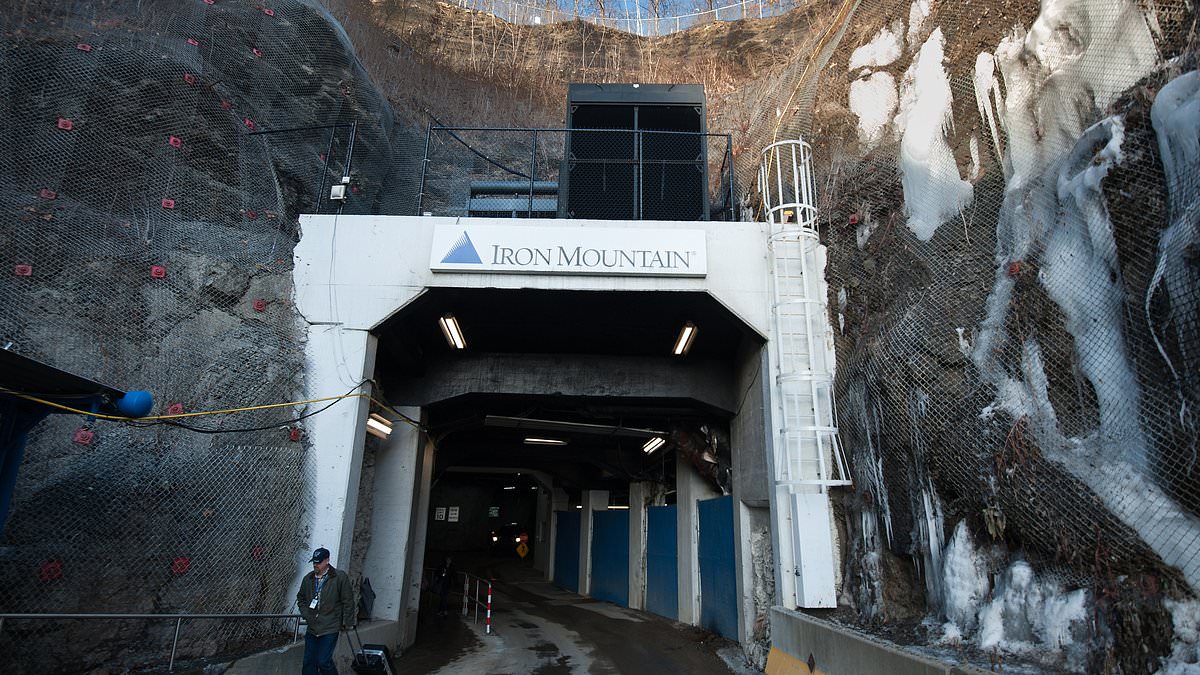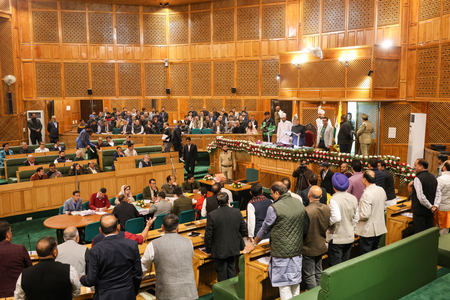Copyright dailymail

Buried deep underground, shielded by tons of limestone, America's so-called shadow libraries were built to save civilization. At the Lenexa Federal Records Center in Kansas - a Cold War-era vault carved into a limestone mine - masked archivists work in a sub-zero chamber nicknamed the Ice Cube, handling fragile reels of celluloid film that could one day reboot the nation. These nuclear-proof archives are stored in the shadow libraries, many of which were built in the early 1950s to ensure that even if cities were vaporized, America's knowledge, laws, culture and collective memory would endure. 'They thought they could resurrect the US after a nuclear war,' David Brett Spencer, associate librarian at Penn State University, told the Daily Mail. 'Some planners believed that if we selected the right records to save, the government could probably continue without serious interruption.' Built in secrecy and reinforced with steel and stone, the libraries were intended to withstand nuclear hits and protect the blueprints of civilization. Some sit beneath the plains of Kansas or under mountains in Pennsylvania, while others are hidden inside old mines in Kentucky. They all hide the memories of the US, just waiting for the day when the world above might need to start again. And these underground archives are still active today, serving as a capsule of everything from historical documents to the digital infrastructure that powers the modern web. 'Companies and government agencies created entirely new ways of producing and organizing information geared towards preserving it during an apocalypse,' Spencer explained. 'They created whole new classification systems to meet the need for quick retrieval of information in a shattered landscape.' The effort began in the aftermath of World War II, as fears of Nazi and later Soviet attacks drove librarians and government planners underground. Spencer said the idea originated in Britain during the Blitz, when records were stored in stone vaults to protect them from German bombs. 'As the Cold War unfolded,' he told the Daily Mail, 'these efforts to protect information continued and expanded as the US confronted the threat of a Soviet nuclear strike that could travel over oceans within hours or minutes, and inflict damage on a much greater scale than anything the Axis powers could wield.' In 1955, during one Cold War episode known as Operation Teapot, librarians and military officers actually tested how books and microfilm would survive a nuclear blast. Officials built an entire fake suburb in Nevada called Doom Town, complete with mannequins, houses and bookshelves, and then detonated bombs nearby. It was meant 'to help the US Army plan to operate during and after a nuclear war,' Spencer said. 'The operation also included some tests to determine the effects of nuclear explosions on America's civilian infrastructure and population.' Spencer told the Daily Mail he discovered that officers from the American Library Association were on hand to witness the blasts. The National Archives later studied the effects of those explosions on paper, microfilm and photographs, then commissioned new protections for the nation's most valuable records. Officials purchased a 55-ton super vault from Mosler Corporation after the tests in 1952 and installed it beneath the gallery, displaying the US Constitution and other founding documents. They even established a direct line to the Pentagon for early warning of an attack, so the nation's most sacred records could be lowered underground at a moment's notice. At the vault's dedication ceremony, President Harry Truman declared the structure would keep America's treasures 'as safe from destruction as anything that the wit of modern man can devise.' Over the following decades, shadow libraries multiplied. Dozens of secret repositories appeared across the country, some equipped with their own power stations, water reservoirs and fire brigades. Others expanded into commercial ventures. 'In some cases,' Spencer said, 'they preserved materials at government-owned sites, and in other cases they contracted with companies like Iron Mountain.' By the 1980s, the practice had spread far beyond government agencies. Wrigley stored its gum recipes in underground vaults, and Pizza Hut kept its franchise records in a mine. 'Third-party companies like Iron Mountain and Underground Vaults and Storage developed more informational services,' Spencer told the Daily Mail. 'In addition to protecting documents and artifacts from war, they came to offer document shredding, digitization, curation of films, network security and even fiber networks.' Spencer said that 'sadly' some planners may have had a war gamer's mentality, willing to count the losses of millions of lives as part of the price of winning World War III - as long as they could help the libraries survive. Other planners, he added, may have hopped that the facilities would help assure Americans that nuclear war was survivable - and be more willing to accept a defense policy based on nuclear arms. 'They thought as long as you saved 'how-to' information, handbooks, blueprints, operational manuals, then survivors could reboot the US in the aftermath.' Today, many of those Cold War vaults are still thriving, but have been modernized for the digital age. The low humidity and constant temperatures of the caves make them ideal for storing hard drives and servers in addition to film and paper. 'Most of the web's content is now backed up in shadow libraries,' Spencer told the Daily Mail. 'They would play the key role in getting the world back online if something wiped out the internet.' Now, what began as a desperate Cold War contingency has evolved into the backbone of the information age.



